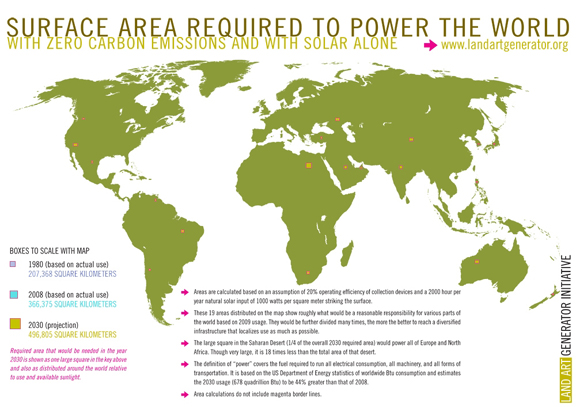The Dawn of Solar –Part II
-Kevin Lehr (kslehr@gmail.com)
Due to the ability to decentralize solar energy production, there are numerous alternative models to the utility scale solar farms for distribution of solar energy, particularly for off-grid communities. Innovative businesses in the USA, Sub-Saharan Africa
and India have already discovered how to provide the power of solar energy to consumers in a more cost effective way than current alternatives. These solutions include a variety of approaches based on the context of the specific customer segment. In the USA
companies like Sun Power provide residential solar panel installations that allow consumers to save on their monthly energy bills, cash in on tax credits & rebates, and increase the value of their homes. In addition solar installations can allow for payback
periods as low as 5 years and savings of up to $30,000 over the 25 year life of a system. Companies like Solar City are using a different approach by leasing solar energy. This approach allows customers to power their homes with clean solar energy without
the upfront costs of solar panel purchase and installation. The Solar City model still provides the ability to sell additional capacity back to the grid creating additional savings on monthly electricity bills. A company called Simpa Networks is using a similar
pay as you go concept through its metering & payment system in off-grid communities in India in order to provide for the radical affordability of this technology in rural areas. After installation of a household solar energy system customers are able to prepay
for solar energy through their mobile phone in small user-defined increments. In this way the payment mechanism seeks to replace current purchasing habits of more polluting & dangerous kerosene or diesel. Furthermore each payment goes towards the overall purchase
of the system allowing for customers to eventually unlock the system providing free energy for the remaining life of the unit. Another company called d.light designs is selling solar powered lamps across the developing world providing a higher quality & cleaner
source of light to millions of people worldwide without access to reliable electricity. In these cases, beyond just access to electricity, solar energy is providing the economic benefits of connectivity and increased productivity for these rural households.

The applications of decentralized solar energy across the developing world have enormous potential. In India the costs of extending the existing grid to rural & mountainous areas are prohibitively high in many places and the current methods of using kerosene
and diesel for light & power are more polluting, have negative health effects, and can be more costly when compared with solar power despite widespread government subsidies of fuel for the poor. There is a huge opportunity to provide clean, decentralized electricity
to these communities through micro-grids & household systems and solar energy could be a great way to produce the electricity to power these systems. On a recent visit to Hosur, an industrial hub outside of Bangalore, I witnessed a community of small manufacturing
businesses running their manufacturing processes on diesel generators as the electricity supply was intermittent at best. For these businesses, diesel costs can make up a significant portion of their operational expenses and the need for these systems causes
the local environment to be polluted with the fumes, noise & smell of diesel generators. There are thousands of small industrial sites like this throughout India and countless more around the world that could all benefit from small scale solutions providing
more cost effective & cleaner solar energy.
Over the coming decades installed capacity and usage of solar energy will continue to increase worldwide as costs continue to decline with improvements to technology related to capture, conversion, storage & transmission and as policy & regulatory environments
are adapted to help facilitate access to these beneficial technologies. As new models & applications are created the distribution of solar energy can become widespread throughout the developing world leading the charge of electrifying the 1.3 billion people
worldwide without reliable access to electricity. Furthermore as solar energy helps to facilitate decentralized & local energy production, countries & individuals will become more energy independent reducing the risk of international conflict over finite energy
resources that are vital to economic growth. Innovative designs incorporating solar energy could revolutionize everything from transportation to clean water systems. As the dawn of the solar age fades, the future of solar energy looks bright.
Concluded
Text by Kevin Lehr
Useful links
http://energyinformative.org/potential-of-solar-energy/
http://energyinformative.org/wp-content/uploads/2012/03/solar-surface-area-required-to-power-the-world.jpg
http://www.economist.com/news/21566414-alternative-energy-will-no-longer-be-alternative-sunny-uplands
http://en.wikipedia.org/wiki/Solar_power_by_country
http://www.solamonenergy.com/saudi-arabia-targets-41gw-of-solar-installations-by-2032-kingdom-set-to-spend-tens-of-billions
http://www.worldenergyoutlook.org/resources/energysubsidies/
http://www.economist.com/blogs/graphicdetail/2012/12/daily-chart-19
http://online.wsj.com/article/SB10000872396390444506004577615662289766558.html
http://www.businessweek.com/articles/2012-10-25/solar-energy-is-ready-dot-the-u-dot-s-dot-isnt#p2
http://capacity4dev.ec.europa.eu/article/solar-energy-has-great-potential-africa-has-yet-take
http://www.undp.org/content/dam/aplaws/publication/en/publications/environment-energy/www-ee-library/sustainable-energy/world-energy-assessment-energy-and-the-challenge-of-sustainability/World%20Energy%20Assessment-2000.pdf
http://www.energyquest.ca.gov/story/chapter15.html